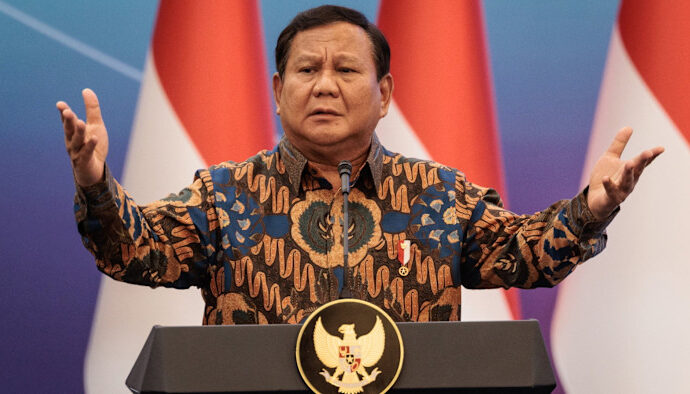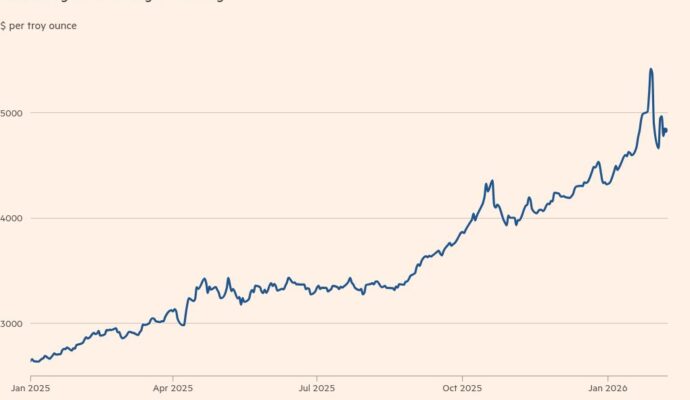After Akiko married in 2021, her new husband worked around the clock as a store manager at a 7-Eleven in Japan’s southern Oita prefecture. He did not have a single day off before he died by suicide almost 16 months later, she said.
“He himself had said several times to the owner that it was too hard and he wanted to quit. But there weren’t enough staff, and because he was the manager, there was no one to replace him,” said Akiko, who asked to speak under a pseudonym. “It would have been better if I forced him to quit sooner no matter what. All I have now are regrets.”
Last year, the prefecture’s Labour Standards Inspection Office found that the 38-year-old man’s suicide was related to overwork after securing evidence that he had worked without a day off for six months.
Relentlessly efficient, spotlessly clean and offering delicious rice balls, fried chicken and sandwiches 24 hours a day, seven days a week, Japan’s convenience stores are the envy of tourists and a cornerstone of Japanese life.
But the dark side of the franchise business model that has underpinned the nation’s konbinis is becoming increasingly exposed, with the system under strain from labour shortages as Japan ages.

Reiji Kamakura, general secretary of the Convenience Store Union, said store owners were under pressure because they were struggling to hire more staff. They had little leeway to raise wages unless the companies share more of the profits, he said.
“When we say owners are reaching breaking point, I don’t mean a few years from now — I mean right now,” said Kamakura.
7-Eleven, FamilyMart and Lawson all rely on a franchise business model to operate stores, taking a cut of sales or gross profit as a royalty in return for store owners using their brand, products and supply chains.
In 7-Eleven’s case, typically between 40 to 70 per cent of gross profit — sales minus cost of goods sold — is paid to the company. 7-Eleven Japan does not recognise the Convenience Store Union since franchisees are not its employees.
After an owner backlash in 2019 over store hours, the three chains made the hours more flexible. However, owners said they felt pressure to keep stores open at all times.
Tomomi Nagai, chief analyst at Toray Corporate Business Research, agreed that high labour costs were squeezing franchise owners’ already low levels of income and the business model risked becoming “unsustainable” if unaddressed.
“Consumption gradually declining at the same time as labour shortages makes things extremely tough,” she said. “I think we’re in a true transitional period, not the kind of upward, high growth we once had.”

Japan’s big three convenience store chains are trying to introduce technology such as self-service tills, artificial intelligence-assisted ordering systems and cleaning robots to reduce the volume of work.
If those efforts fall short, the companies could be forced to introduce new franchise contract terms in order to account for higher wages, said analysts. Or, if new franchisees cannot be found, they will have to close stores.
A veteran Japanese retail executive said the convenience store businesses contained many “hidden losses” shouldered by franchisees and the whole industry risked “a sudden collapse in franchise owners willing to take over new stores”.
The problems are most acute for Seven & i Holdings, the owner of 7-Eleven, which has fought off a $46bn takeover bid from Canada’s Alimentation Couche-Tard. Monthly sales have grown only 0.8 per cent on average in the current financial year, compared with more than 4 per cent for Lawson and FamilyMart.
An internal Seven & i survey of almost 13,000 store owners obtained by the Financial Times showed 90 per cent were anxious about the minimum wage rises. They were also concerned about the company’s plan to add another 1,000 stores by 2030 amid rising competition from new rivals such as drug stores and Aeon’s supermarket chain My Basket.

Stephen Dacus, president of Seven & i, said in an interview with the FT that there was a risk of being unable to attract new franchisees if sales did not improve.
When asked about the Oita suicide and growing pressures on franchisees, Dacus said “we don’t control the wages” and outlined measures to reduce the burden on workers. Seven & i has said it would make every effort to prevent such a “tragic incident” from happening again.
7-Eleven Japan has since introduced a warning system, which was under development before the suicide, that alerts owners to excessive working hours or not enough days off.
Dacus, who used to work night shifts at his father’s 7-Eleven store in the US, said he believed the company needed to do more to help recruitment efforts and take other steps to look after its owners.
“The first and most obvious way you can do that is by selling more. We need to innovate with better and more products that they can sell and drive their sales at high margins,” he said. “We need to lean into technology far more than we have.”

Seven & i, which makes 7.5 per cent of its sales but more than half of its operating profit in Japan, also wants to shift further towards Mitsubishi-owned Lawson’s “mega-franchise” model, under which a single franchise owner runs multiple stores.
To do so, 7-Eleven Japan is considering making big adjustments to contracts in 2027 for the first time in 50 years for franchisees opening new stores.
Mitsuya Maki, executive vice-president in charge of corporate planning at Lawson, said recruiting people was “unquestionably a pain point” for franchisees, but its focus was on introducing labour-saving technology for now. “We’re not thinking we must urgently and fundamentally change the contracts,” he said.
A 7-Eleven store manager in central Honshu said profits had been chipped away by a lacklustre product line-up, an ageing consumer base and the opening of rival stores nearby — including other 7-Elevens.
He estimated he worked 30 hours a month for free and expected that would rise after the minimum wage increased by 6 per cent this month to around the national average of ¥1,121 ($7) an hour. Doing the work himself kept costs down and would help his family-owned store to stay in the black, he said.
“The biggest problem is we simply can’t get people,” the manager said, adding that if proposed social security amendments came into effect in 2026 that would raise costs further. “We’d be better off shutting down the store in this state because we can’t swallow that.”
Akiko said she feared for store owners unless the companies made changes to the franchise model. “I think there’s probably a lot of people like my husband, who just keep working endlessly with no replacement.”


